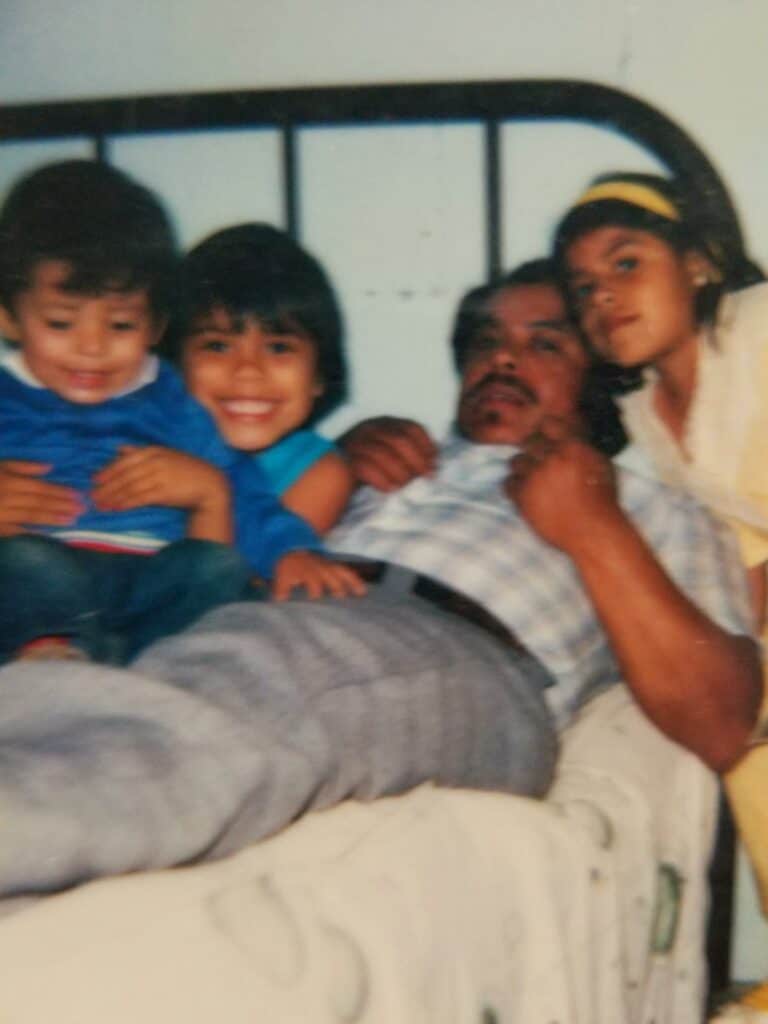What does my story have to do with Black History Month? I grew up in a culturally homogeneous community in South Texas, a place where every single person I encountered was either Mexican, White, or both.

My parents were migrant farmworkers and our family traveled following the crops from South Texas to Washington state. Every year, my life shifted from the comfort of my home in South Texas, surrounded by my extended family and neighbors, immersed in Mexican culture and bilingualism, to the stark dryness of English only in Washington.
This taught me that two worlds can exist simultaneously, and I should never forget that. This physical move from the comfortable to the uncomfortable, the emotional move from living with love and acceptance to light tolerance to deep disdain and racism, ingrained in me an empathy for the suffering and lived experiences of people from different walks of life.
Looking to learn beyond the history classes in high school, I found a book in my library that opened a window into a different kind of resistance to racism: a book about Malcolm X.
I know he can be a controversial figure, but his approach to resistance was familiar, having grown up with the story of the Mexican revolutionary agrarian war hero Emiliano Zapata. Zapata has been a figure in my life because we share the same last name. In my paternal familial fantasies, we imagine we are related to him somehow, which is how we remind ourselves to always fight for what is right even if it is hard.
I have always profoundly identified with Malcolm’s evolution and awakening to the world around him, especially when I thought how dangerous it was for him to speak out. Malcolm’s story made me want to learn more. My journey to explore the ways people who have been historically oppressed, brutalized, minoritized, and otherized in our own country led me to transfer from the University of Texas-Pan American (now The University of Texas-Rio Grande Valley) to Winston-Salem State University, a historically black college in NC.
It was only when I took the course, Africans in Mexico, at WSSU that I became aware of the African, and Black influence in Mexican culture. I began to learn about my own people's erasure of Blackness from our social, and cultural, consciousness. I was aghast and ashamed of the portrayals of Afro-Mexicans in Mexican media. This view of anti-Blackness in Mexican culture helped me understand why the roles of Black Mexicans aren’t uplifted in the history of Mexico and why their influence in Mexican culture isn’t made obvious even for folks who live right next to Mexico.
I cannot speak for all Mexicans. We are not a monolith. I can reflect on my own experience and what I have lived and learned. As a Mexican, I have often heard other people with shared heritage talk about racism and anti-Blackness, like it is exclusive to the American experience. Clearly, not only is anti-Blackness pervasive in Mexico, but it has endured the test of time. The exclusion of Black Mexicans from the popular narrative of Mexican culture isn’t an accidental omission; it is rooted in anti-Blackness baked into the social strata through the intricate caste system established in Mexico by the Spanish invaders.
Sharing my story and how I have arrived at this point in my life where curiosity is the intention I lead with in understanding people’s lived experiences, I invite you to reflect on your personal history and to be curious about other people’s lives to rebuild those connections with our neighbors on the heart-level. Every time I look back on the influence of Black culture in my life, I see instances where those stories have inspired me to do more and be better. I hope you will take this Black History Month to learn and celebrate the contributions of past and present agents of change.
Written by: Sylvia Zapata, SAF Executive Director
